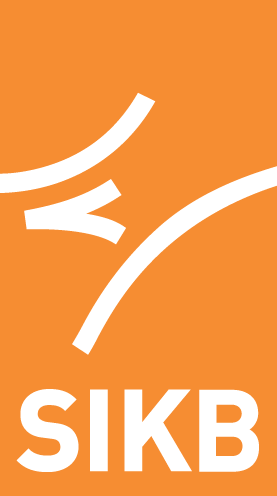About SIKB
SIKB is a network in which the private and the public sector strive to continuously and structurally enhance the standards of activities relating to soil management in the Netherlands. This includes decision-making, rendering of services, as well as soil remediation and soil handling.
The work of SIKB breaks up into five main objectives:
- further harmonisation of applied procedures and technology
- application of improved technology and procedures
- economic and cost conscious work performance
- well defined definition of quality and making quality assurance identifiable, often by certification or accreditation
- getting and keeping support from all parties concerned
Motto
SIKB provides instruments for simpler and better soil management.
Some history
Consciously incorporating aspects of quality on the job is definitely on the rise, not just in corporate business, but also more and more in public institutions. Among employees as well as employers the awareness is growing that forms of quality assurance play a vital part in delivering products and services that really answer to the customer's demands.
Site investigation and soil remediation
Several organisations working on the protection and cleaning of the Dutch soil are forerunners in this general trend. Towards the turn of the century it was also established that site investigation in The Netherlands was suffering from a falling quality level. In response, several initiatives were started independently. The Association of Quality Assurance in Site investigation (VKB) and the Ministry of Housing, Spatial Planning and Environment (VROM) then took the initiative to cooperate in a new Foundation Infrastructure for Quality Assurance of Soil Management, which in Dutch abbreviates to SIKB.
The development of this new structure was started in September 1998 and the structure was formally founded on 12 april 2000. A series of quality assurance documents has been developed since then, in Dutch. Some of these, i.e. most of the documents on laboratory testing, have been translated into English and are available in pdf-format free of charge. They are accessible via the following links:
- Inspection of consignments of soil, building materials and granular waste materials (AP04)
- Laboratory analyses for soil, sediment and groundwater investigation (AS 3000)
More and more of the other documents contain a brief summary in English.
Data exchange
SIKB has developed a protocol for the digital exchange of soil data. The objective of this protocol is to provide a standard exchange format for digital soil data for the sector as a whole, to prevent errors due to the inability to exchange digital data unambiguously. Read more.
Archaeology
The European Convention on the protection of the archaeological heritage (Valletta 1992) requires Member States of the Council of Europe to require archaeological research more often than before. In The Netherlands this Valletta Convention has opened up the market in archaeological research, traditionally dominated by the universities, to commercial parties. The Dutch government has required the market to develop national quality standards. SIKB builds and maintains the resulting quality assurance structure. Read more
Education
To coordinate existing courses on soil policy, law and technology, SIKB manages, with the partners in the Expert Network Soil and Subsoil, the www.bodembreedacademie.nl(BBA). The BBA offers courses, e.g. a course geared to enforcement officers, links knowledge demand to supply, and manages exams for soil remediation supervisors and inspectors of soil protecting surfaces.
SIKB also facilitates Post-Academic Education. E.g. the Track Archaeology (PASTA) consists of seven modules on policy, fieldwork and materials, which can be taken independently from eachother.
At the time, all educational activities are only available in Dutch.
Sampling (international)
As part of the European Commission-sponsored Leonardo da Vinci programme an international consortium has developed a sampler education structure, including a structure for examination. This pilotproject ran around 2008 with SIKB on the reference group. The education was to be geared towards the specifications of Nordtest, a certification structure in place in the Scandinavian and Baltic countries.
Outline of the our structure
The general outline of our structure has been based on quality assurance always taking the form of a circular process. The continuous further improvement mentioned above is possible only when experience is brought back into the process. This has resulted in the structure shown (in Dutch) in the figure.
